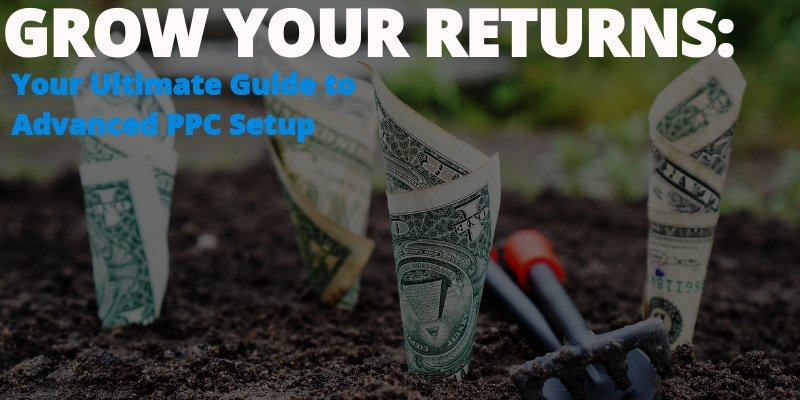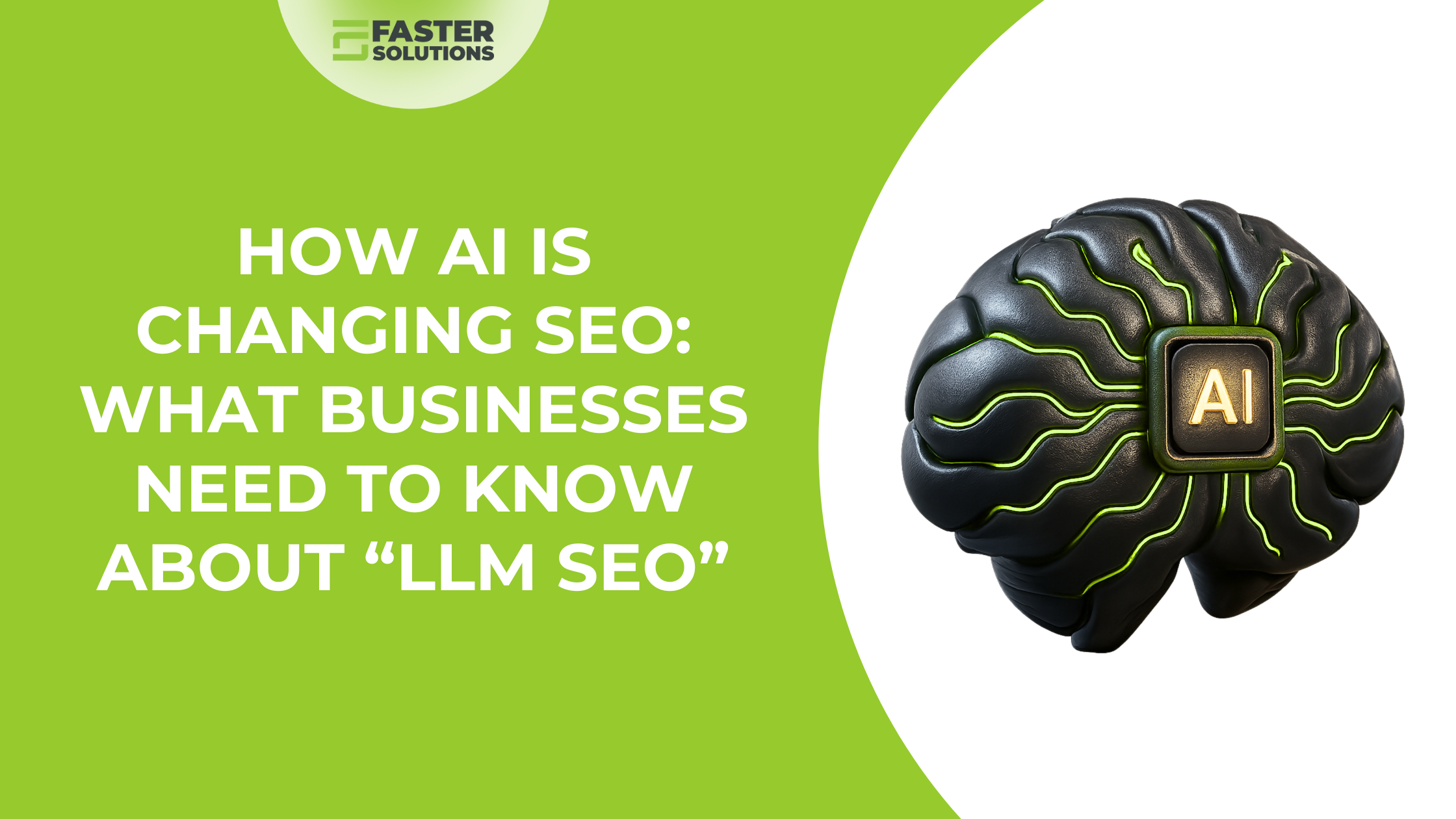
By the end of this post you will be in a much better position to start your own Marketing Campaign using PPC, but many may find the sometimes complex process of PPC management to be daunting and too time consuming to manage on their own. If you feel that way by the end of this post, we are here to help, so reach out and contact us today.
In prior posts I have given a general overview of Pay-Per Click (PPC) Advertising, in this post I am going to provide actionable insights and tactics to ensure you can start a PPC campaign successfully and hopefully avoid the sometimes costly mistakes many PPC beginners make, whether it’s sending users to your homepage from ads, using keywords that are too broad, failing to use negative keywords, or any number of other small oversights that can put your advertising efforts and your budget in hot water.

The Faster Points
- Before Setting up AdWords perform keyword and budget research
- In your first campaign focus your advertising on the most profitable geographic areas
- A Manual Bid Strategy is often the most effective, Conversion Optimized bids have many negative caveats to effective use
- Always Use ad Extensions
- In many cases the most effective ad rotation type is rotate indefinitely
- Landing pages are an extremely important part of driving conversions
- Use Device Bid Adjustments, Often tablet traffic is poor converting
- Be sure to add negative keywords to avoid irrelevant clicks
- Keep Search RLSA in mind, it is a high converting targeting tactic
Stop! Research!
It’s go time, you have the budget and the time to start your businesses first PPC campaign and you are ready to do a cannonball into AdWords- certain it is going to be a revenue machine. Stop, move that cursor away from AdWords and open up a new tab, and research. If you don’t, AdWords is still going to be a revenue machine – just for Google only.
Start off with some in depth keyword research. Unfortunately since you aren’t running an active campaign yet, Google’s Keyword Planner Tool is not accessible meaning you will need to use a third party keyword research tool like: SERPS, SEMrush , or SpyFu. These tools will show you search volume for your keywords, competition, and average Cost Per Click (CPC). Keyword research will help you find out if AdWords is really right for your business; is there enough search volume to warrant the time and effort of setting up and managing an AdWords account, what will your budget need to be, how much competition do you face for your desired keywords, Etc.

Many new AdWords users tend to start off with very broad keywords (lawyer instead of lawyers in Duluth or better yet, Custody Lawyers in Duluth). I find by doing keyword research, one is often forced into choosing the more effective Long Tail Keywords to better align with the services and products one is selling. While the broad match keyword, Lawyer may very likely have a lower CPC than Custody Lawyers in Duluth, don’t let that one metric be the deciding factor when choosing your keywords. Choosing the broad match, Lawyer will end up costing you more and getting you less, than if you had gone with the more expensive but also more relevant Long Tail Variant. Why? A broad keyword like Lawyer will end up showing your ads more often, and to less relevant searchers. While your focus is custody law you will get people looking for a wide range of unrelated legal services clicking on your ad, costing you money, and never converting, while the long tail narrows your focus to only the most relevant and likely to convert searchers. Boosting conversions and increasing quality scores.
Keyword research will also help you to set a PPC budget, if you start your first campaign without an idea of what your average CPC will be for the relevant keywords you might end up putting time and effort into setting AdWords up only to find you don’t have the budget to effectively advertise. If your budget is $5 a day, and all or most of your keywords cost more, you will unable to effectively advertise on AdWords. By doing keyword research prior to set up you can quickly see if you have the budget to start a campaign and save yourself the effort of setting up an underfunded campaign.

What you don’t want to do if you find your budget to be too small is force a campaign into existence with too small a budget or less effective, but cheaper broad keywords. Instead step back find out what kind of budget you will require, and set a small portion of returns aside to meet those requirements. In the meantime, use the time you would have used managing your AdWords campaign, to do more research. That way when your budget aligns with your keywords you’re in an even better position to run an effective PPC campaign that truly is a revenue generating machine for your business.
Campaign Setup
Your research is now complete, you have your keywords and your budget – it’s time to get tactical and begin campaign set up.
Locations
In general most businesses just getting started with AdWords serve a regional or even local customer base, so even though you may want to sell to the whole nation (or world) it’s best to initially focus on where most of your business or conversions come from geographically. This focuses your efforts and helps to ensure your first campaigns budget is utilized to its full effectiveness. If you sell t-shirts and 90% of your eCommerce sales are from users within the state of Minnesota, or in one particular city focus your PPC efforts there- select that as your target location. One other way to keep targeting geographically focused is to place a location in your long tail keywords (Eg. Custody Lawyers in Duluth MN). A first PPC campaign with an appropriate geographic focus will almost always beat the broad AdWords location default of the United States and Canada on almost all ROI based performance metrics.
Bid Strategy
AdWords offers a variety of different bid types, but because this is likely your first campaign you won’t have the necessary data to choose any of the conversion optimization based bid types, and depending on how your conversions are set up you may never want to (discussed later). For the vast majority of businesses, the best strategy is to choose manual CPC and set your maximum bid based on your already completed keyword research. If however you are lucky enough to have integrated eCommerce tracking implemented proceed with the, target return on ad spend (ROAS) strategy, but be careful to take the unique way google calculates returns into account when setting your budget.
On to why in most cases I would recommend not choosing a conversion optimization bid type. In theory it sounds great, I mean you would have to be crazy not to want to optimize for conversions with your bids, however in most cases users track a variety on minor conversions in addition to their primary. This leads google to bid up and use more of your budget on the keywords that lead to the greatest quantity of minor conversions, to the detriment of your lower converting primary revenue generating conversions. While you can manually remove minor conversions from being used for optimization, you are also required to remove them from your conversion column, which can create a variety of issues when it comes to understanding overall campaign performance. Conversion optimized bid types sound great, but often under-perform compared to a well-researched manual CPC bid strategy.
Ad Extensions
Google gives a detailed overview of each of the Ad Extensions, including examples and directions, which makes their set up easy. All I will say is you should add and set up every relevant extension category available to your industry and offerings. Extensions can drastically increase the overall effectiveness of your ads.
Ad Rotation
I would generally recommend to proceed with the rotate indefinitely feature over the three automatic ad rotation optimization options, for the same reasons I recommended against conversion optimization bid types. If you have minor conversions in addition to your primary one AdWords will end up showing and spending much of your budget on the ad that leads to a high quantity of minor conversions, instead of the ads that generate fewer, but more profitable primary conversions. By choosing rotate indefinitely you are able to easily remove poor converting ads, while avoiding having AdWords spend a large part of your budget on a single ad that drives a lot of minor conversions, but offers a low ROAS.
Creating your first Ad Group & Ads
There is a vast quantity of information and resources on the subject of ad creation and ad copy from sources like WordStream, Unbounce, HubSpot, and many others so I won’t go into it here. I would however recommend sticking to simple text ads in your first campaign. Even though dynamic search and call only ads can be very effective in some instances, they can also become the exact opposite in others.
Choosing Landing Pages
Choosing the right landing page is just as important as writing effective copy. If you sell apparel and you create ad copy that promotes a sale on hats, when a user clicks that ad they should be brought to the page that contains your sale hats. Not your homepage, not your new hats page, but your sale hats page. When a user clicks on an ad (especially on mobile) they expect the landing page content to match up with what the ad promoted, without searching or additional navigation, if it doesn’t they are going to bounce. You are paying for each click, make sure your clicks provide the most conversions possible and select a relevant landing page, or create one if you don’t have one.
Your First Search Campaign Is Running: General Recommendations
Device Bid Adjustments
After 1-2 weeks, I recommend taking a detailed look at your ad performance by device. In nearly all cases a massive decrease by (often 100%), bid adjustment on tablets should be implemented. Based on wide ranging data analysis on user behavior by device, I have found in most instances tablet users tend to be what I call “bored browsers” they often aren’t really looking seriously for anything in particular, rarely if ever turn into a primary conversion, and rarely end up converting across devices. Tablets search, click, and cost you money but rarely return a positive ROAS for most websites. So if you are trying to optimize your budget, tablets should be avoided.
I would also recommend reviewing mobile devices for the same reasons and adjusting your device bid accordingly. In general for most (not all) industries and websites, computers are still going to be your bread and butter when it comes traffic quality and conversions, so your device bids should reflect that.
Negative Keywords
Before you launch be sure to add negative keywords to your PPC campaign or ad group, these are variations of or additions to your keywords people may search for but you don’t want your ads to show for. For instance a law firm likely wouldn’t want their ads to appear in search queries that use the words and phrases: pro bono, free, can’t afford, no cost, Etc. These terms are unlikely to generate revenue for the firm, and ad clicks from phrases that use them will eat up budget with little or no return. Return on Now offers a great negative keyword master list, I recommend reviewing when setting up your account. In addition to adding negative keywords before launch you should also review search terms post launch to ensure you aren’t receiving poor quality traffic from keywords and phrases that you missed when first adding your negative keywords.
Search RLSA: Something to think about after your initial success in the Search Network.
While rarely used Search RLSA can be a powerful and high converting tool, which brings the power of re-targeting to the Search Network. Users who visit your site are tagged with a cookie that allows you focus your budget on showing your ads to them again in search. Another powerful aspect of Search RLSA, is your ability to focus on broader keywords, because of your narrowed reach and focus, it often drives down cost per conversion and increases conversion rates. Giving you one more method to boost conversions and ROAS.
While there are many other factors, tactics, and options that go into making your first PPC Campaign in the Search Network, if you keep the tactics I discussed in mind when setting up your campaign you will greatly increase your likelihood of success, boost your conversions, and remove a lot of the headache many first time PPC users face.
Have any other questions about PPC in search or need help managing a PPC campaign, contact us today.
By Benjamin Henniges
Digital Marketing Manager





